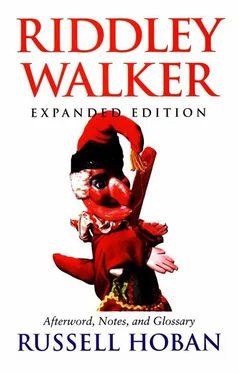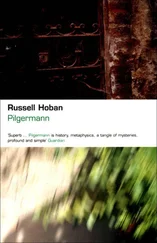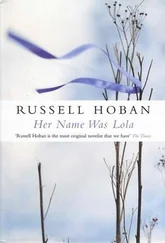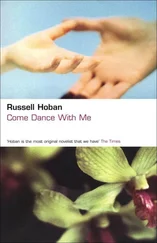There’s a shame I feel. Draw a picture of that, hey? We live in huts and holes in the ground and our minds are slow. People know there was more but they’re ashamed and they say we’re just different from the people long ago. The gulls on the beach, I think a long time ago those were flying birds, not just walking ones like now. I’m sure of it although I don’t know how I’m sure. They must feel something like the way I do.
A Short Guide to Riddleyspeak
As much as possible I tried for more than one meaning in the words. For example, when Riddley says, on page 8, “I wer the loan of my name” he means that he is the lone carrier of his name, living on borrowed time. Life among his people is usually hard and short.
Some words that look strange will explain themselves when sounded out; others may require a little more work. This is a sampling to help the reader.
arga warga:Onomatopoeia suggestive of gobbling-up.
axel:“Axel rate” means accelerate.
batcherd:Badger.
Berstin Fyr:Explosives. Note that the Eusa Story is written in an archaic form of the demotic current in Riddley’s time. This is because language went through a near-total breakdown in a dark age after the destruction of civilisation.
Blobs:“Blobs your nunkel.” This comes from “Bob’s your uncle,” old slang meaning “Everything is perfect” or “That wraps it up.” “Blob” in this case is suggestive of the mutations of the Eusa folk.
catwl twis:Catalyst.
divvyt:Divided. The divvy roof at How Fents is a roof on poles, open on all sides, where meat from the hunt or anything that has been gathered or gained is divided.
[Master] Chaynjis:The big transformations; also means infinity and the mysterious origins of everything. When Brooder Walker dies he goes “into the dark, into the 1st knowing and the Master Chaynjis.”
nebyul:Used only with “eye” to mean nebulae; the flaming nebyul eye sees everything.
nexter:One who is next in authority or command.
No rumpa no dum / No zantigen Eusa cum:No trumpets, no drums / No dancing when Eusa comes. (See also Notes for May 28, 1974)
oansome:That thing “whats in us lorn and loan and oansome” is forlorn, alone, and all on its lonesome own.
Parments:Parliament’s, as in “Parments in the mud you know.”
pirntowt:Printout.
Plomercy:Diplomacy; looking for mutual accommodation. In some cases Plomercy is a plea for mercy. When the old dog makes his Plomercy he isn’t negotiating—he’s been crowded out of his pack and he’s favouring Riddley with his death.
poasyum:“Some poasyum” means symposium.
reqwyrt:Required, but has a little more weight depending on the context. Also resonates with “helping the qwirys,” which derives from the current formula “helping the police with their enquiries.” Helping the qwirys on someone in Riddley’s time usually leaves bruises. “Time and reqwyrt” in the Eusa show talk means that the crowd will go down that road with Eusa as many times as necessary. Helping him (bruiselessly) with his enquiries.
revver newit:“[T]hey all ready ben Shorsday Week which they revver newit the fraction for the Ram….” Translation: “[T]hey [Goodparley and Orfing] had already been here in the week of the shortest day of the year when they raised the tax to be paid to the Ram….” The word “revenue” has been broken down into “revver new” and is used here as a transitive verb. The Ram has revved up the tax engine to demand a new tax.
rizlas:Cigarette papers (made at the local paper mill). In 1974 the widely used brand in England was Rizla.
Sarvering Gallack Seas:Sovereign Galaxies. Gallack Seas would suggest to Riddley’s people sky-seas that might be crossed by boats in the air. Readers might think of galleons, carracks. “Sarvering” is the participle of “sarver,” which hints at severing, cutting off something for oneself, saving it for one’s people, claiming a territory.
sess men:Assessment men, assessors.
sharna pax:Sharpen the axe. There is some irony in this for the U.K. reader because “Pax!” (“Peace!”) has for generations been a schoolboy expression (in public-school circles) of surrender that ends a fight. The sound here is important—“Sharna pax and get the poal when the Ardship of Cambry comes out of the hoal!” falls naturally into a chant.
suching waytion:Situation; such is the way things are.
thinet:Pronounced thigh-net , means twined. “We thinet hans roun the fire”; harks back to “thine” in hymns.
wotcher:A cockney greeting; derives from “What cheer?” Here it means “Wotcher [What have you] got for me?” This part of the preshow ritual is called the wotcher.
wud:Means wood as in forest; also “would,” intention, volition or desire. The hart of the wud is where Eusa saw the stag who was the hart of the wud. The heart of the would is also the essence of one’s wanting, the heart of one’s deepest desire. The crypt in Canterbury Cathedral with its stone trees is the spiritual hart of the wud.
This book’s page at the publisher’s site: [ indiana]
Google search on the web: [“russell hoban” “riddley walker”] [ “the legend of st eustace”]
Google search in newsgroups: [ “russell hoban”]
The Head of Orpheus: A Russell Hoban Reference Page: [ ocelotfactory]
Russell Hoban in Fantastic Fiction: [ fantasticfiction]
Russell Hoban in Wikipedia: [ wikipedia]
Russell Hobans’ fan group at Yahoo: [ yahoo]
That’s all, folks!
Copyright © 1980, 1998 by Russell Hoban
This book is a publication of
Indiana University Press
601 North Morton Street
Bloomington, Indiana 47404-3797 USA
www.indiana.edu/~iupress
Telephone orders 800-842-6796
Fax orders 812-855-7931
Orders by e-mail iuporder@indiana.edu
This book was originally published in 1980 by Jonathan Cape, Ltd., and by Summit Books.
First Indiana University Press edition 1998
Views of Punch by Russell Hoban
All rights reserved
No part of this book may be reproduced or utilized in any form or by any means, electronic or mechanical, including photocopying and recording, or by any information storage and retrieval system, without permission in writing from the publisher. The Association of American University Presses’ Resolution on Permissions constitutes the only exception to this prohibition.
The paper used in this publication meets the minimum requirements of American National Standard for Information Sciences—Permanence of Paper for Printed Library Materials, ANSI Z39.48-1984.
Manufactured in the United States of America
ISBN 0-253-33448-9
Iwl write down the Eusa Story when I come to it.
A device held on the puppeteer’s tongue.













